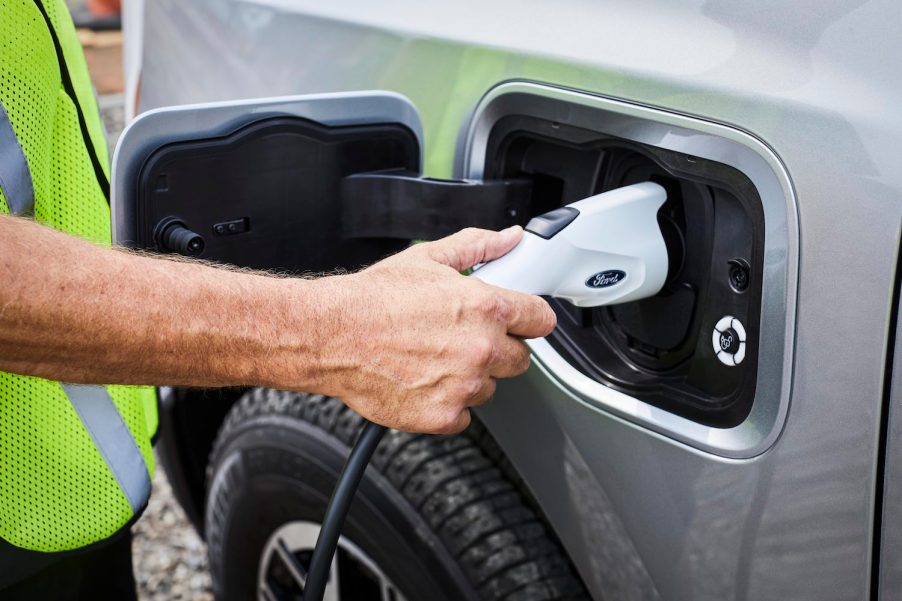
Only 6 EVs Will Still Get a $7,500 Tax Credit in 2024 (And 3 of Them Are Teslas)
The federal EV tax credit is changing dramatically for the 2024 model year. Instead of having to file it with your taxes, dealerships can apply it to the price of the vehicle. In addition, no automaker will run out of credits. But it only applies to vehicles with batteries that contain mostly components from the U.S. or our allies. As a result, several PHEVs will qualify, and some Rivian models will get half the credit. But only six full EVs will get the full $7,500 credit:
- Chevrolet Bolt EV
- Chevrolet Bolt EUV
- Ford F-150 Lightning
- Tesla Model 3
- Tesla Model X
- Tesla Model Y
Chevrolet Bolt EV
The Bolt is Chevrolet’s smallest EV. It starts at $27,495, so the federal tax credit will take a good percentage off its price. But don’t get it confused with the EUV.

Chevrolet Bolt EUV
While Chevrolet advertises the regular Bolt as a compact, it specifies that the Bolt EUV is a crossover. It starts at $28,795.
Ford F-150 Lightning
Sadly, the Ford Mustang Mach E will no longer qualify for the federal EV tax credit. But the F-150 Lightning still will. Both the standard range battery and extended range battery variants qualify for the full $7,500. The only way for the F-150 Lightning to be disqualified would be if you optioned it above $80k.

Tesla Model 3
The Tesla Model 3 Performance trim does qualify for the federal EV tax credit, but only if it is optioned below $55,000 (as that is the cutoff for cars). Interestingly, the sourcing of the battery in the Model 3 Long Range trim makes it ineligible, so after the rebate the two trims cost almost the exact same amount.
Tesla Model X
The only Model X battery that qualifies for the federal rebate is the one in the Long Range trim. Its cutoff is $80,000. Luckily, Tesla dropped this SUV’s MSRP to $79k for 2024, likely so it still qualifis.

Tesla Model Y
Several Model Y trims qualify: the Model Y Performance, All-Wheel Drive, and Rear-Wheel Drive. Luckily, because it is a more budget-friendly SUV than the Model X, you’ll be hard-pressed to configure it to more than $80k and make it ineligible for the tax credit.
Learn more about the ins and outs of the 2024 EV tax credit changes in the video below:



